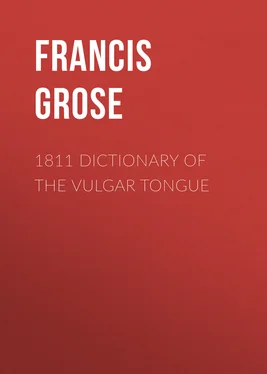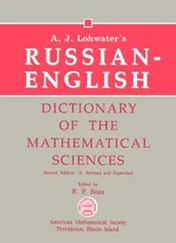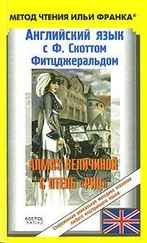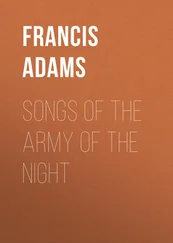Francis Grose - 1811 Dictionary of the Vulgar Tongue
Здесь есть возможность читать онлайн «Francis Grose - 1811 Dictionary of the Vulgar Tongue» — ознакомительный отрывок электронной книги совершенно бесплатно, а после прочтения отрывка купить полную версию. В некоторых случаях можно слушать аудио, скачать через торрент в формате fb2 и присутствует краткое содержание. Жанр: foreign_desc, foreign_language, Словари, на английском языке. Описание произведения, (предисловие) а так же отзывы посетителей доступны на портале библиотеки ЛибКат.
- Название:1811 Dictionary of the Vulgar Tongue
- Автор:
- Жанр:
- Год:неизвестен
- ISBN:нет данных
- Рейтинг книги:5 / 5. Голосов: 1
-
Избранное:Добавить в избранное
- Отзывы:
-
Ваша оценка:
- 100
- 1
- 2
- 3
- 4
- 5
1811 Dictionary of the Vulgar Tongue: краткое содержание, описание и аннотация
Предлагаем к чтению аннотацию, описание, краткое содержание или предисловие (зависит от того, что написал сам автор книги «1811 Dictionary of the Vulgar Tongue»). Если вы не нашли необходимую информацию о книге — напишите в комментариях, мы постараемся отыскать её.
1811 Dictionary of the Vulgar Tongue — читать онлайн ознакомительный отрывок
Ниже представлен текст книги, разбитый по страницам. Система сохранения места последней прочитанной страницы, позволяет с удобством читать онлайн бесплатно книгу «1811 Dictionary of the Vulgar Tongue», без необходимости каждый раз заново искать на чём Вы остановились. Поставьте закладку, и сможете в любой момент перейти на страницу, на которой закончили чтение.
Интервал:
Закладка:
Francis Grose
1811 Dictionary of the Vulgar Tongue
PREFACE
The merit of Captain Grose's Dictionary of the Vulgar Tongue has been long and universally acknowledged. But its circulation was confined almost exclusively to the lower orders of society: he was not aware, at the time of its compilation, that our young men of fashion would at no very distant period be as distinguished for the vulgarity of their jargon as the inhabitants of Newgate; and he therefore conceived it superfluous to incorporate with his work the few examples of fashionable slang that might occur to his observation.
But our Jehus of rank have a phraseology not less peculiar to themselves, than the disciples of Barrington: for the uninitiated to understand their modes of expression, is as impossible as for a Buxton to construe the Greek Testament. To sport an Upper Benjamin, and to swear with a good grace, are qualifications easily attainable by their cockney imitators; but without the aid of our additional definitions, neither the cits of Fish-street, nor the boors of Brentford would be able to attain the language of whippism. We trust, therefore, that the whole tribe of second-rate Bang Ups, will feel grateful for our endeavour to render this part of the work as complete as possible. By an occasional reference to our pages, they may be initiated into all the peculiarities of language by which the man of spirit is distinguished from the man of worth. They may now talk bawdy before their papas, without the fear of detection, and abuse their less spirited companions, who prefer a good dinner at home to a glorious UP-SHOT in the highway, without the hazard of a cudgelling.
But we claim not merely the praise of gratifying curiosity, or affording assistance to the ambitious; we are very sure that the moral influence of the Lexicon Balatronicum will be more certain and extensive than that of any methodist sermon that has ever been delivered within the bills of mortality. We need not descant on the dangerous impressions that are made on the female mind, by the remarks that fall incidentally from the lips of the brothers or servants of a family; and we have before observed, that improper topics can with our assistance be discussed, even before the ladies, without raising a blush on the cheek of modesty. It is impossible that a female should understand the meaning of TWIDDLE DIDDLES, or rise from table at the mention of BUCKINGER'S BOOT. Besides, Pope assures us, that "VICE TO BE HATED NEEDS BUT TO BE SEEN;" in this volume it cannot be denied, that she is seen very plainly; and a love of virtue is, therefore, the necessary result of perusing it.
The propriety of introducing the UNIVERSITY SLANG will be readily admitted; it is not less curious than that of the College in the Old Bailey, and is less generally understood. When the number and accuracy of our additions are compared with the price of the volume, we have no doubt that its editors will meet with the encouragement that is due to learning, modesty, and virtue.
DICTIONARY OF THE VULGAR TONGUE
A
ABBESS, or LADY ABBESS, A bawd, the mistress of a brothel.
ABEL-WACKETS. Blows given on the palm of the hand with a twisted handkerchief, instead of a ferula; a jocular punishment among seamen, who sometimes play at cards for wackets, the loser suffering as many strokes as he has lost games.
ABIGAIL. A lady's waiting-maid.
ABRAM. Naked. CANT.
ABRAM COVE. A cant word among thieves, signifying a naked or poor man; also a lusty, strong rogue.
ABRAM MEN. Pretended mad men.
TO SHAM ABRAM. To pretend sickness.
ACADEMY, or PUSHING SCHOOL. A brothel. The Floating Academy; the lighters on board of which those persons are confined, who by a late regulation are condemned to hard labour, instead of transportation.—Campbell's Academy; the same, from a gentleman of that name, who had the contract for victualling the hulks or lighters.
ACE OF SPADES. A widow.
ACCOUNTS. To cast up one's accounts; to vomit.
ACORN. You will ride a horse foaled by an acorn, i.e. the gallows, called also the Wooden and Three-legged Mare. You will be hanged.—See THREE-LEGGED MARE.
ACT OF PARLIAMENT. A military term for small beer, five pints of which, by an act of parliament, a landlord was formerly obliged to give to each soldier gratis.
ACTEON. A cuckold, from the horns planted on the head of Acteon by Diana.
ACTIVE CITIZEN. A louse.
ADAM'S ALE. Water.
ADAM TILER. A pickpocket's associate, who receives the stolen goods, and runs off with them. CANT.
ADDLE PATE. An inconsiderate foolish fellow.
ADDLE PLOT. A spoil-sport, a mar-all.
ADMIRAL OF THE BLUE, who carries his flag on the main-mast. A landlord or publican wearing a blue apron, as was formerly the custom among gentlemen of that vocation.
ADMIRAL OF THE NARROW SEAS. One who from drunkenness vomits into the lap of the person sitting opposite to him. SEA PHRASE.
ADRIFT. Loose, turned adrift, discharged. SEA PHRASE.
AEGROTAT, (CAMBRIDGE), A certificate from the apothecary that you are INDISPOSED, (i. e.) to go to chapel. He sports an Aegrotat, he is sick, and unable to attend Chapel. or Hall. It does not follow, however, but that he can STRUM A PIECE, or sport a pair of oars.
AFFIDAVIT MEN. Knights of the post, or false witnesses, said to attend Westminster Hall, and other courts of justice, ready to swear any thing for hire.
AFTER-CLAP. A demand after the first given in has been discharged; a charge for pretended omissions; in short, any thing disagreeable happening after all consequences of the cause have been thought at an end.
AGAINST THE GRAIN. Unwilling. It went much against the grain with him, i.e. it was much against his inclination, or against his pluck.
AGOG, ALL-A-GOG. Anxious, eager, impatient: from the Italian AGOGARE, to desire eagerly.
AGROUND. Stuck fast, stopped, at a loss, ruined; like a boat or vessel aground.
AIR AND EXERCISE. He has had air and exercise, i.e. he has been whipped at the cart's tail; or, as it is generally, though more vulgarly, expressed, at the cart's a-se.
ALDERMAN. A roasted turkey garnished with sausages; the latter are supposed to represent the gold chain worn by those magistrates.
ALDGATE. A draught on the pump at Aldgate; a bad bill of exchange, drawn on persons who have no effects of the drawer.
ALE DRAPER. An alehouse keeper.
ALE POST. A may-pole.
ALL-A-MORT. Struck dumb, confounded. What, sweet one, all-a-mort? SHAKESPEARE.
ALL HOLIDAY. It is all holiday at Peckham, or it is all holiday with him; a saying signifying that it is all over with the business or person spoken of or alluded to.
ALL HOLLOW. He was beat all hollow, i.e. he had no chance of conquering: it was all hollow, or a hollow thing, it was a decided thing from the beginning. See HOLLOW.
ALL NATIONS. A composition of all the different spirits sold in a dram-shop, collected in a vessel into which the drainings of the bottles and quartern pots are emptied.
ALLS. The five alls is a country sign, representing five human figures, each having a motto under him. The first is a king in his regalia; his motto, I govern all: the second, a bishop in pontificals; motto, I pray for all: third, a lawyer in his gown; motto, I plead for all: fourth: a soldier in his regimentals, fully accoutred; motto, I fight for all: fifth, a poor countryman with his scythe and rake; motto, I pay for all.
ALTAMEL. A verbal or lump account, without particulars, such as is commonly produced at bawdy-houses, spunging-houses, &c. Vide DUTCH RECKONING.
ALTITUDES. The man is in his altitudes, i.e. he is drunk.
AMBASSADOR. A trick to duck some ignorant fellow or landsman, frequently played on board ships in the warm latitudes. It is thus managed: A large tub is filled with water, and two stools placed on each side of it. Over the whole is thrown a tarpaulin, or old sail: this is kept tight by two persons, who are to represent the king and queen of a foreign country, and are seated on the stools. The person intended to be ducked plays the Ambassador, and after repeating a ridiculous speech dictated to him, is led in great form up to the throne, and seated between the king and queen, who rising suddenly as soon as he is seated, he falls backwards into the tub of water.
Читать дальшеИнтервал:
Закладка:
Похожие книги на «1811 Dictionary of the Vulgar Tongue»
Представляем Вашему вниманию похожие книги на «1811 Dictionary of the Vulgar Tongue» списком для выбора. Мы отобрали схожую по названию и смыслу литературу в надежде предоставить читателям больше вариантов отыскать новые, интересные, ещё непрочитанные произведения.
Обсуждение, отзывы о книге «1811 Dictionary of the Vulgar Tongue» и просто собственные мнения читателей. Оставьте ваши комментарии, напишите, что Вы думаете о произведении, его смысле или главных героях. Укажите что конкретно понравилось, а что нет, и почему Вы так считаете.











